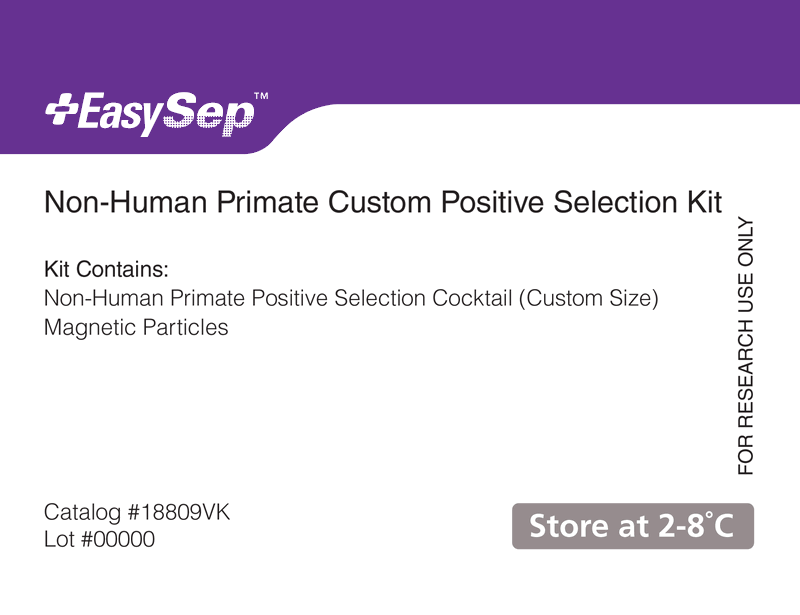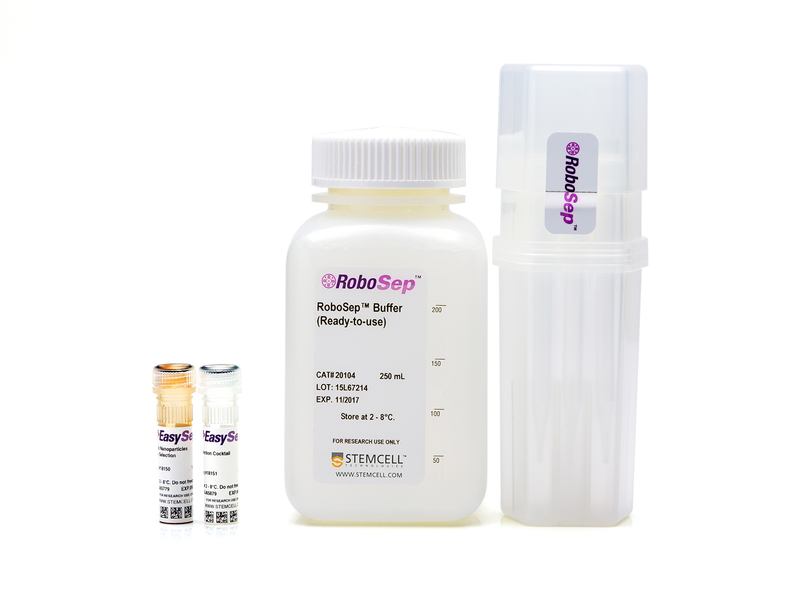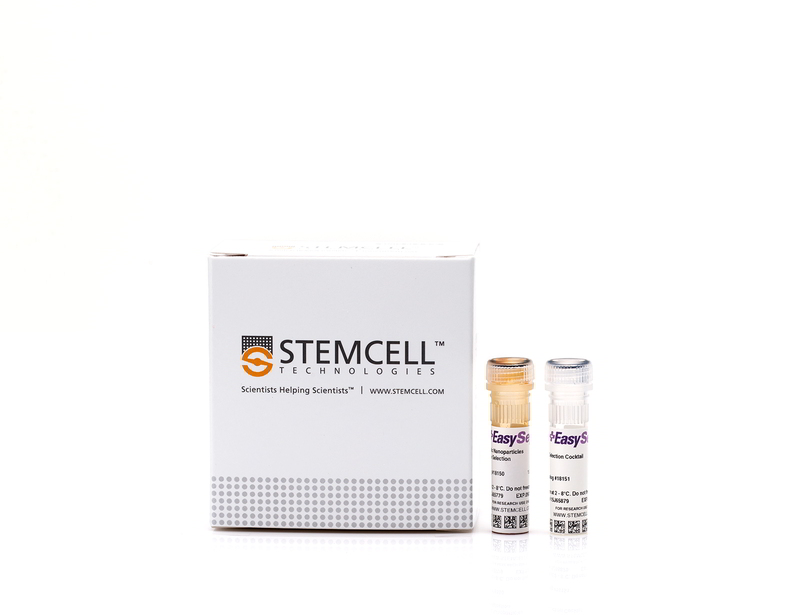EasySep™ Non-Human Primate Custom Positive Selection Kit
Immunomagnetic positive selection kit
概要
The EasySep™ Non-Human Primate Custom Positive Selection Kit is designed to isolate any cell type of interest from fresh or previously frozen peripheral blood mononuclear cells by positive selection. STEMCELL Technologies offers a wide selection of antibodies for custom separation and will work with you to isolate a cell type of interest. Please contact our technical support team at techsupport@stemcell.com for more information.
Components
- EasySep™ Non-Human Primate Custom Positive Selection Kit (Catalog #18809)
- EasySep™ Non-Human Primate Custom Positive Selection Cocktail
- EasySep™ Magnetic Particles, 1 mL
- RoboSep™ Non-Human Primate Custom Positive Selection Kit with Filter Tips (Catalog #18809RF)
- EasySep™ Non-Human Primate Custom Positive Selection Cocktail
- EasySep™ Magnetic Particles, 1 mL
- RoboSep™ Buffer (Catalog #20104)
- RoboSep™ Filter Tips (Catalog #20125)
Magnet Compatibility
• EasySep™ Magnet (Catalog #18000)
• “The Big Easy” EasySep™ Magnet (Catalog #18001)
• RoboSep™-S (Catalog #21000)
Subtype
Cell Isolation Kits
Cell Type
B Cells, Dendritic Cells, Granulocytes and Subsets, Hematopoietic Stem and Progenitor Cells, Macrophages, Marrow Stromal Cells, Mesenchymal Stem and Progenitor Cells, Monocytes, Mononuclear Cells, Myeloid Cells, NK Cells, Other, Plasma, T Cells
Species
Non-Human Primate
Sample Source
PBMC, Whole Blood
Selection Method
Positive
Application
Cell Isolation
Brand
EasySep, RoboSep
Area of Interest
Immunology, Stem Cell Biology
技术资料
数据及文献
Publications (1)
Nature metabolism 2019 jul
Metabolic plasticity of HIV-specific CD8+ T cells is associated with enhanced antiviral potential and natural control of HIV-1 infection.
Abstract
Abstract
Spontaneous control of human immunodeficiency virus (HIV) is generally associated with an enhanced capacity of CD8+ T cells to eliminate infected CD4+ T cells, but the molecular characteristics of these highly functional CD8+ T cells are largely unknown. In the present study, using single-cell analysis, it was shown that HIV-specific, central memory CD8+ T cells from spontaneous HIV controllers (HICs) and antiretrovirally treated non-controllers have opposing transcriptomic profiles. Genes linked to effector functions and survival are upregulated in cells from HICs. In contrast, genes associated with activation, exhaustion and glycolysis are upregulated in cells from non-controllers. It was shown that HIV-specific CD8+ T cells from non-controllers are largely glucose dependent, whereas those from HICs have more diverse metabolic resources that enhance both their survival potential and their capacity to develop anti-HIV effector functions. The functional efficiency of the HIV-specific CD8+ T cell response in HICs is thus engraved in their memory population and related to their metabolic programme. Metabolic reprogramming in vitro through interleukin-15 treatment abrogated the glucose dependency and enhanced the antiviral potency of HIV-specific CD8+ T cells from non-controllers.



